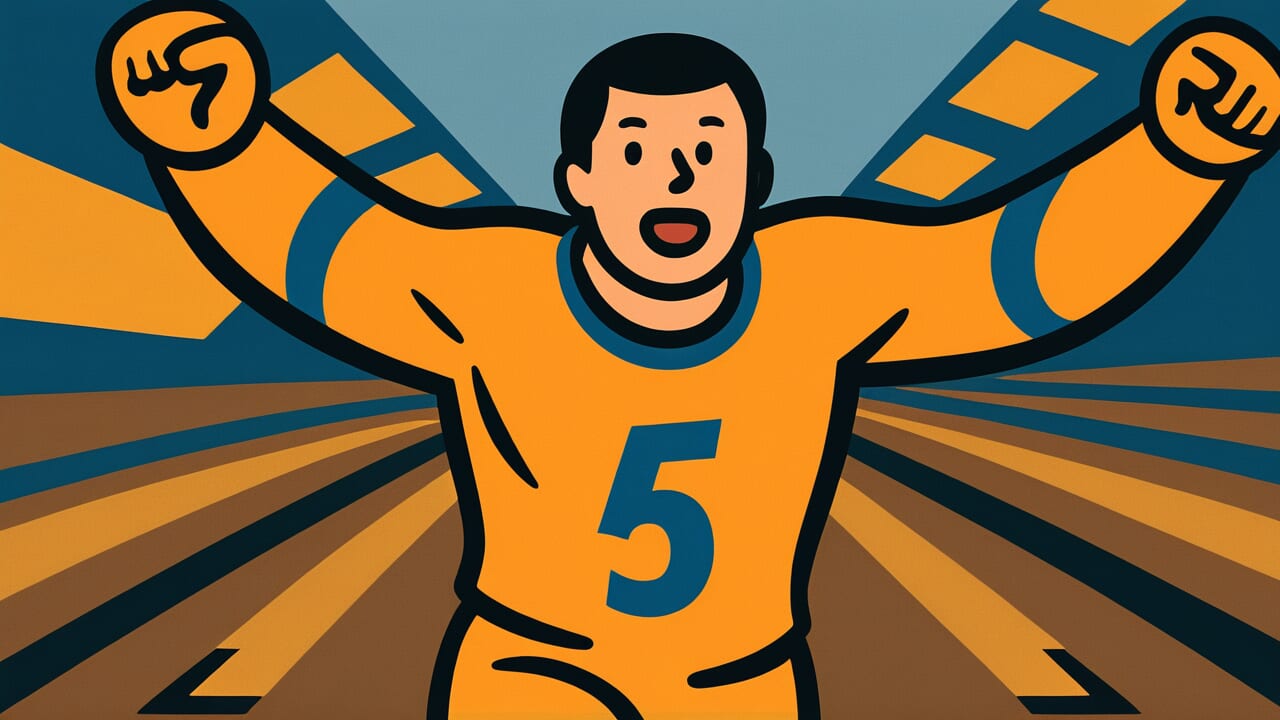How to Read “The quick one wins”
Hayai ga kachi
Meaning of “The quick one wins”
“The quick one wins” means that in any situation, the person who acts quickly gains an advantage. Even when doing the same thing, the earlier your timing, the better results and benefits you can obtain.
This proverb is used when multiple people compete for limited opportunities or resources. For example, buying popular products, applying for jobs, business opportunities, or romance. In these situations, whoever moves first gets priority.
It also warns against hesitation. While you’re thinking, someone else might beat you to it.
The meaning of this saying hasn’t changed in modern society. In our information age especially, speed often determines competitive advantage. Good apartments, good jobs, good encounters—opportunities don’t wait.
This proverb clearly conveys the importance of acting quickly without postponing decisions.
Origin and Etymology
No clear written records remain about the origin of “The quick one wins.” However, we can make interesting observations from the structure of this proverb.
This expression is closely related to the phrase “hayai mono gachi” (first come, first served). In Edo period commerce and markets, customers who arrived first could get the best or cheapest goods.
At morning markets especially, shops opened at dawn. People competed for fresh fish and vegetables. From these daily experiences, the advantage of quick action became common knowledge.
In samurai society too, people recognized the importance of competing to be first in battle and transmitting information quickly. During the Warring States period, swift judgment and action in urgent situations could mean the difference between life and death.
The use of the word “wins” shows this expression assumes competitive situations. By saying “the quick one wins” rather than just “quick is good,” it emphasizes gaining advantage over others.
This competitive principle likely became widely shared among common people as commerce developed after the Edo period.
Usage Examples
- Limited sales are “the quick one wins,” so let’s go right when the store opens
- Popular courses fill up quickly, so I applied with a “the quick one wins” mindset
Universal Wisdom
The proverb “The quick one wins” captures the essence of opportunity in human society. Why has this saying been passed down through generations? Because it shows a harsh but true law of life.
Opportunities are never distributed equally. Only those who act can seize them.
Everyone seeks better things. But the better something is, the more limited its supply. Where this scarcity meets human desire, competition is born.
In competition, even when ability and qualifications are equal, the person who raises their hand first gets priority. This principle always operates.
Interestingly, this proverb doesn’t just teach how to win competitions. It also reveals a psychological weakness in humans. People think, hesitate, and hold back.
We want to wait until perfect preparation is complete. But sometimes this caution becomes our greatest enemy. In seeking perfection, we lose the opportunity itself.
Our ancestors understood the decisive importance of “timing” in life. No matter how excellent your abilities, nothing begins without action.
This proverb continues to convey, in simple words, the balance between thinking and acting, and the importance of courage in making decisions.
When AI Hears This
Game theory clearly distinguishes between games where moving first is advantageous and games where it’s disadvantageous. Two factors determine this difference: “information asymmetry” and “constraint of options.”
First-mover advantage exists when your action can physically constrain the other person’s choices. In real estate purchases, for example, whoever contracts first secures that property. Later arrivals cannot choose it.
This is called the “commitment effect.” By confirming your action first, you narrow the other person’s options. Seat-taking and buying limited products have the same structure.
However, games where moving second is advantageous also exist. This happens when you can see the opponent’s move before choosing your optimal response.
Just as going second in rock-paper-scissors is overwhelmingly advantageous, waiting is more rational when you can judge after gaining information. In business too, the “fast follower strategy” of releasing improved versions after seeing competitors’ new products often succeeds.
“The quick one wins” only applies when taking action creates physical constraints. In situations where gathering information is important, this proverb doesn’t fit.
The key question is: “If I move first in this situation, will the other person’s options really decrease?” If you can answer this, you can scientifically see when to move quickly and when to wait.
Lessons for Today
What “The quick one wins” teaches modern people is the reality that opportunities have expiration dates. Precisely because we live in an information-overflowing age, this lesson carries even more weight.
The important thing is escaping the trap of perfectionism. If you wait for all conditions to align perfectly, the opportunity will become someone else’s.
Have the courage to move when you’re 60 percent prepared. You can learn the remaining 40 percent while running.
However, this proverb isn’t telling you to rush and fail. What matters is maintaining daily preparation so you can move quickly when the moment comes.
Information gathering, skill development, building relationships—these daily accumulations enable you to act swiftly when opportunities arrive.
In your life, some opportunity might be arriving at this very moment. The observational skills to not miss it, and the decisiveness to step forward without hesitation.
By continuing to polish these two abilities, you can achieve “wins” in various situations throughout your life.



Comments